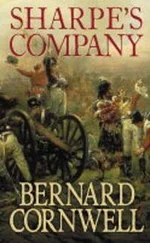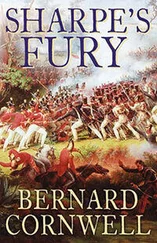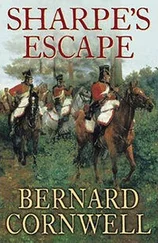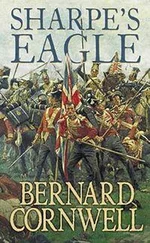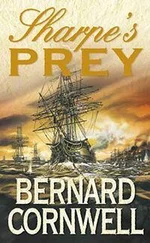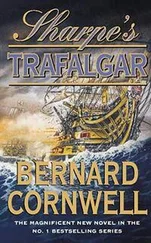Ducos, triumphant, witnessed the piece of paper. “You had better make your preparations, Mr Killick. Should you be tempted to break this oath, I promise you that your name will be known throughout America as that of a man who abandoned his allies and ran away from a fight. It is not pleasant, Mr Killick, to have one’s name remembered for ever in the lists of traitors. First Benedict Arnold, then Cornelius Killick?” For a second the look on Killick’s face persuaded Ducos that he had said too much, then the American nodded meekly.
Outside the hovel, Killick swore. The guns thumped from their pits and the first heavy rain, drumming from the north, began to fall. That rain, the American knew, was likely to last through the night, making rifles or muskets difficult to fire. The French now had the advantage of rain, so why did they need his ship?
“What will you do?” Henri Lassan asked.
“Christ knows.” Killick threw the remains of his cigar into the mud where it was snatched up by a sentry. The American stared at the low profile of the fort that gouted smoke with each burst of an howitzer shell. “Is it worse to betray an enemy or an ally, Henri?”
Henri Lassan, who hated what Ducos had done, shrugged helplessly. “I don’t know.”
“I suppose I’ll have to fire high,” Killick said, “and hope Major Sharpe will forgive me.” He paused, wondering what carnage was being done inside the cauldron of the fort’s walls where the smoke pulsed from the relentless shells. “The bastard’s my enemy, Henri, but I can’t help liking the bugger,”
“I fear that if Major Ducos had his way,” Lassan said, “Major Sharpe will be dead by this time tomorrow.”
“So I suppose it doesn’t matter what I do.” The American gazed at the embattled fortress. “You believe in prayer, my friend, perhaps you’d better pray for my soul.”
“I already pray for it,” Lassan said.
“Because my honour,” Killick said softly, “is bargained away. Goodbye, my friend! Till the dawn.”
So the French had two allies; rain and an American, and their victory was thus made certain.
An hour before midnight the archway shuddered as the facing stones fell into the flooded ditch. Every shot thereafter worked more damage on the gateway, gouging out the rubble-filling and tipping the rampart’s pavement above the arch. Frederickson, carrying a hooded lantern, climbed the gate’s internal staircase to examine the extent of the destruction. He came out disgusted. “It’s going to fall. Surbedded work.”
“Surbedded?” Sharpe asked.
“Stone laid against the grain. Frederickson paused as another roundshot thudded into the archway. ”The stone’s cut vertically from the quarry and laid horizontally. It lets the water in. That gate’s a shoddy piece of building. They should be ashamed of it.“
But if the French could not build, they could shoot. Even in the rain-curtained darkness the French gunners were hitting their target and Sharpe suspected that dark-lanterns must have been placed on the esplanade as aiming marks. Once in a while the French fired a light ball; a metal, cloth-wrapped cage filled with saltpetre, powder, sulphur, resin and linseed oil. The balls burned fiercely, hissing in the rain, showing the gunners what damage they had inflicted. That damage was more than sufficient to make Sharpe pull his sentries away from the ramparts by the arch, thus abandoning the gateway to the enemy’s artillery.
Yet the rain did greater damage than the guns that night. At midnight, when Sharpe was going around the ramparts, a Marine sergeant found him. “Captain Frederickson says can you come, sir?”
Frederickson was in the scorched cavern of the fort’s second magazine, which had been the least damaged by Bampfylde’s explosion. A lantern cast a dull, flickering glow on the blackened rear wall and on the pathetic hoard of powder and made-up cartridges that were Sharpe’s final reserve of ammunition. “I’m sorry, sir,” Frederickson said.
Sharpe swore. Water had seeped through the granite blocks of the magazine’s arched ceiling and soaked the powder so that the barrels were now filled with a dark grey, porridge-like sludge, while the home-made cartridges had come apart in a soggy mess of paper, lead, and wet powder. The captured French cartridges were also heavy with water and Sharpe swore again; swore foully, uselessly, and savagely.
Frederickson fingered the wall over the barrels. “The explosion must have loosened the masonry.”
“It was dry when we came,” Sharpe said. “I checked!”
“Rain takes time to seep through, sir,” Frederickson said.
Six Marines carried the powder to the stone gallery where the cooking fires burned. There the powder could be spread out and some of it would be dry by morning, but Sharpe knew that this disaster meant the end of his defiance.
It was his own fault. He should have covered the powder with a tarpaulin, but he had not thought. There was so much he should have done. He should have foreseen that the enemy had mortars, he should have warned Palmer about the stone dam, he should have made a bigger sortie on the first night, he should have brought Harper’s cannons on to the wall where they would have been safer from the shells. He should have had water ready to fight the fires, he should, perhaps, never have fought at all.
Sharpe sat in the cave of the magazine and a wave of despair hit him. “We used over half our good ammunition?”
“Well over half.” Frederickson was as unhappy as Sharpe. He sat opposite, knees drawn up, and the lantern threw the shadows of the two riflemen high on the arch of the magazine’s ceiling. “We might as well bring the wounded in here now. They’ll be more comfortable.”
“Yes.” But neither man moved. “There’s some French ammunition in the ready magazines, isn’t there?” Sharpe asked.
“Only fifty cartridges in each.”
Sharpe picked up a shard of stone and scratched a square on the magazine floor. He marked the position of the gate on the southern side. “The question,” he spoke slowly, “is whether they’re fooling us with the gate and plan to attack somewhere else, or not?”
“They’ll come for the gate,” Frederickson said.
“I think so.” Sharpe scratched marks over the gate. “We’ll put everyone there. Just leave Minver with a handful of men to guard the other walls.”
Sharpe clung to the pathetic hope that a British brig, nosing up the enemy coast with the impunity that Nelson’s victories had given to the Navy, might see his strange flag. A brig, moored in the channel, could fire hell and destruction into an attacking French column. Yet in this weather, with this fitful, veering wind and the blotting, seething rain that bounced four inches high off the shattered cobbles of the yard, Sharpe knew no brig would come. “Your fellow might have reached our lines by now.” He was clutching at straws, and he knew it.
“If he survived,” Frederickson said grimly. “And if anyone will take him seriously. And even then the Army will have to go on its knees to the Navy and beg them to risk one little boat.”
“Bugger Bampfylde,” Sharpe said. “I hope he gets the pox.”
“Amen.”
A twelve-pounder ball crashed into the gate and there was a pause, a cracking sound like a bone breaking, then the grumbling, tumbling, roaring slide as tons of masonry collapsed inwards and downwards. The two officers stared at each other, imagining the stones thumping and sliding into the wet ditch, then settling in a shambolic mound as the dust, started from old mortar, was soaked by the rain.
“They have a breach,” Frederickson said in a voice which, by its very insouciance, betrayed apprehension.
Sharpe did not answer. If his men could hold off one more attack, just one, then it would buy time. Time for a ship to find them, time for French fears to settle in. Perhaps, if Calvet was repulsed again, the general — would leave the fort alone, content to screen it with a half battalion of men. The rumble of the subsiding stones faded in the hissing rain.
Читать дальше

